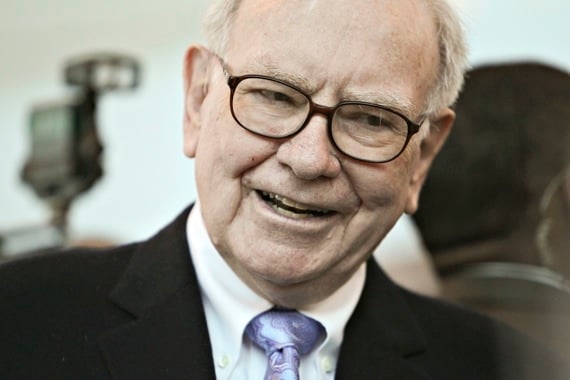It's time to come to grips with misconceptions about taxing the rich
Although Warren Buffett may be a stellar investor, his entry into the world of federal tax policy has brought forth nothing but bad ideas based on flawed information and misleading demagoguery. Let's review the record.
In his State of the Union address last week, President Barack Obama called for enactment of the so-called Buffett rule, saying it wasn't fair that a rich person pays a lower tax rate than Buffett's secretary. In a bald act of political theater, Obama invited Buffett's secretary to sit in one of the guest seats in the gallery near first lady Michelle Obama during the speech.
Last year, the president proposed that no household making more than $1 million a year pay a smaller share of its income in taxes than middle-class families. In support of this rule, he called for these earners to pay a minimum effective tax rate of at least 30 percent.
The trouble with the Buffett rule is that it is an example of the dangers of making policy based on anecdote, instead of facts. As the Congressional Research Service documents, the average effective tax rate among millionaires is already about 30 percent. The president is trying to solve a problem that doesn't exist.
Taxation Objectives
Of course, it is true that not every millionaire has an effective tax rate of 30 percent. But what does that tell us? Tax policy reflects a balance among the objectives of economic growth, ease of compliance, cost of administration, social policy and -- yes -- fairness. Because millionaires can legally reduce their tax liability below some perceived “fair” level, it implies that they are contributing to some or all of these other objectives. Obama may succeed in his single-minded, fairness-only approach to income taxation, although I think he will come to regret it.
Let's think for a second about the other consequences of instituting the Buffett rule. Taken at face value, it could mean another alternative minimum tax. An early version of the AMT was born in 1969 to make sure that 155 high-income Americans didn't use loopholes to avoid paying taxes. Today, it stands as a perennial threat to the middle class because it was never indexed to inflation. Each year Congress struggles to devise a “patch” to protect the middle class from being hit by the AMT, which deprives millions of taxpayers from taking deductions for dependent children and local real-estate taxes.
Maybe Obama envisions it as part of a reform of the AMT. If so, imposing the Buffett rule would mean an overhaul not worth undertaking. Why spend the political capital and energy fixing the AMT when the entire code is a mess?
That brings me to the primary cost of the Buffett rule: It gets in the way of real and needed tax reform. The very existence of the AMT is striking evidence of a broken system. The U.S. should be able to raise the revenue needed to pay for government operations with a code that promotes the needed mix of growth, fairness and other objectives. Tax reform would mean raising the desired revenue with a broader base and the lowest rates possible. The Buffett rule (as would every tax-policy proposal in Obama's speech) goes in the wrong direction: a narrowing base (millionaires) and a desire for higher rates.
Of course, the biggest misconception about the Buffett rule is that it would help balance the budget. Not really. A rough static estimate -- meaning no assumptions about growth or changes in behavior -- suggests that the additional revenue would amount to about $35 billion a year. This works out to less than 3 percent of the $1.3 trillion annual federal budget deficit.
Boosting Growth
Compare this with a tax reform that broadens the base and lowers rates. Some studies indicate this might raise the U.S.'s average growth by roughly 0.3 percentage point annually. That increase in growth might boost federal revenue by $80 billion to $100 billion. Put differently, adopting the Buffett rule, instead of a fundamental tax reform, would deprive the government of a net $45 billion to $65 billion a year.
Fairness in public policy is important, but the Buffett rule gets it wrong. With spending racing out of control, there are many better places to look for fairness. One place to start is to reduce the entitlement benefits of the affluent. In an era when a debt crisis could cripple the economy and bequeath a lower standard of living to the next generation, it is a moral imperative to undertake tax and entitlement reform.
Perhaps Buffett could have that conversation with his secretary.
(Douglas Holtz-Eakin, who was chief economist for the Council of Economic Advisers to Presdient George W. Bush from 2001 to 2002 and the director of the Congressional Budget Office from 2003 to 2005, is the president of the American Action Forum, a public-policy institute. The opinions expressed are his own.)







